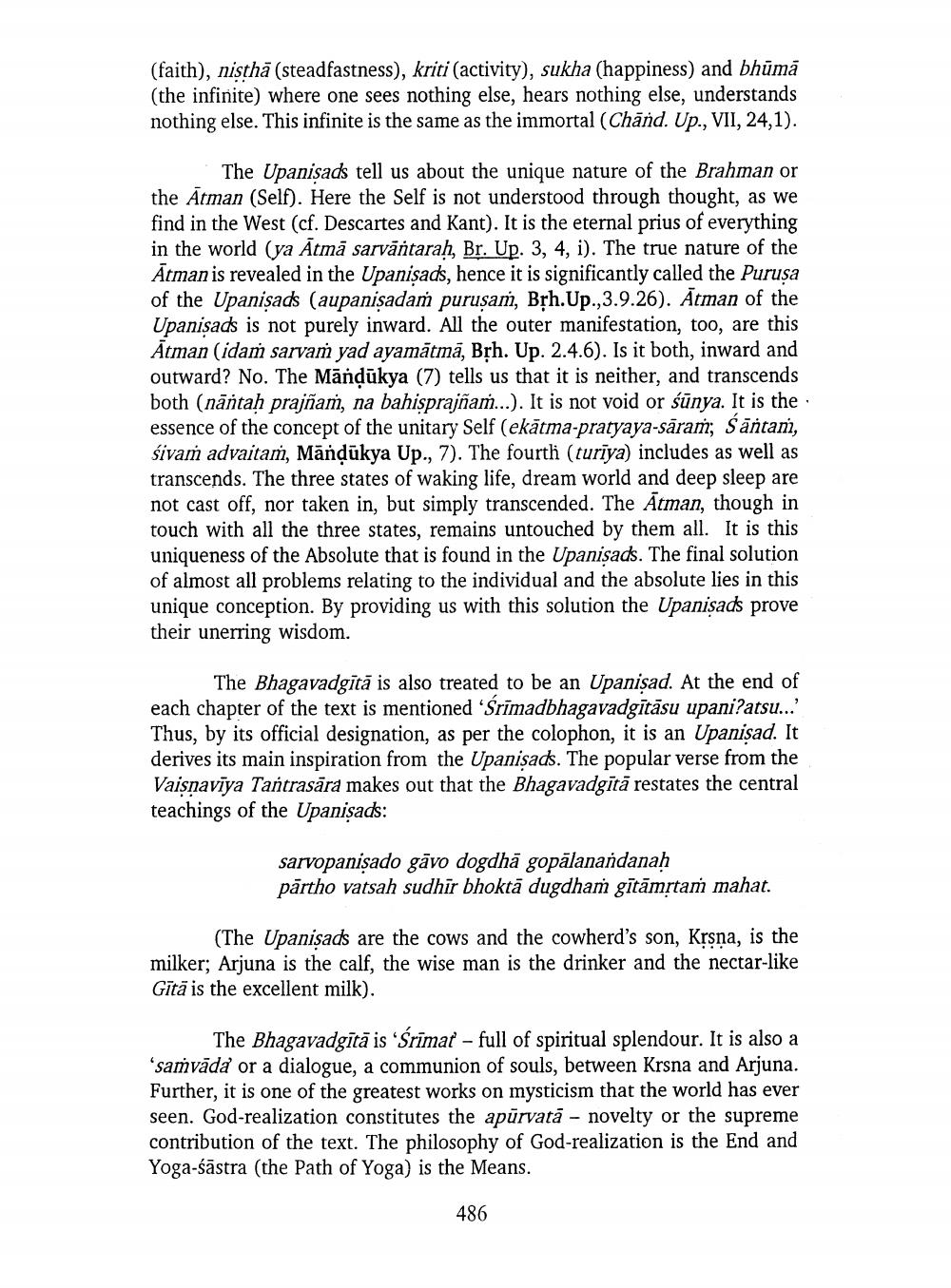________________
(faith), nisthā (steadfastness), kriti (activity), sukha (happiness) and bhūmā (the infinite) where one sees nothing else, hears nothing else, understands nothing else. This infinite is the same as the immortal (Chāṁd. Up., VII, 24,1).
The Upanisads tell us about the unique nature of the Brahman or the Atman (Self). Here the Self is not understood through thought, as we find in the West (cf. Descartes and Kant). It is the eternal prius of everything in the world (ya Atmā sarväntarah, Br. Up. 3, 4, i). The true nature of the Atman is revealed in the Upanisads, hence it is significantly called the Purusa of the Upanisads (aupanişadaṁ puruşam, Bșh.Up.,3.9.26). Ātman of the Upanisads is not purely inward. All the outer manifestation, too, are this Atman (idam sarvam yad ayamātmā, Běh. Up. 2.4.6). Is it both, inward and outward? No. The Mānąūkya (7) tells us that it is neither, and transcends both (nāntah prajñam, na bahisprajñań...). It is not void or sūnya. It is the essence of the concept of the unitary Self (ekātma-pratyaya-sāraḥ, śāntan, sivaṁ advaitam, Mānļūkya Up., 7). The fourth (turīya) includes as well as transcends. The three states of waking life, dream world and deep sleep are not cast off, nor taken in, but simply transcended. The Atman, though in touch with all the three states, remains untouched by them all. It is this uniqueness of the Absolute that is found in the Upanisads. The final solution of almost all problems relating to the individual and the absolute lies in this unique conception. By providing us with this solution the Upanisads prove their unerring wisdom.
The Bhagavadgitā is also treated to be an Upanisad. At the end of each chapter of the text is mentioned 'Srimadbhagavadgītāsu upani?atsu...' Thus, by its official designation, as per the colophon, it is an Upanişad. It derives its main inspiration from the Upanişads. The popular verse from the Vaisnaviya Tantrasāra makes out that the Bhagavadgitā restates the central teachings of the Upanisads:
sarvopanisado gāvo dogdhā gopalanandanah pārtho vatsah sudhir bhoktā dugdham gītāmrtaṁ mahat.
(The Upanisads are the cows and the cowherd's son, Krsna, is the milker; Arjuna is the calf, the wise man is the drinker and the nectar-like Gītā is the excellent milk).
The Bhagavadgītā is 'śrīmať – full of spiritual splendour. It is also a 'saħvādà or a dialogue, a communion of souls, between Krsna and Arjuna. Further, it is one of the greatest works on mysticism that the world has ever seen. God-realization constitutes the apūrvatā - novelty or the supreme contribution of the text. The philosophy of God-realization is the End and Yoga-śāstra (the Path of Yoga) is the Means.
486




